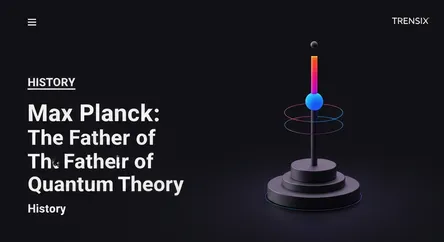History
Max Planck: The Father of Quantum Theory

Discover Max Planck, the Nobel Prize-winning physicist whose groundbreaking quantum theory revolutionized our understanding of the subatomic world.
What is it?
Max Planck was a German theoretical physicist who is considered the founder of quantum theory. In 1900, he introduced the revolutionary idea that energy is not continuous but is emitted in discrete packets called "quanta." This concept was a radical departure from classical physics. His work led to the formulation of Planck's constant (h), a fundamental constant in physics that relates the energy of a photon to its frequency. For his discovery of energy quanta, Planck was awarded the Nobel Prize in Physics in 1918. His work laid the essential foundation for 20th-century physics, paving the way for Albert Einstein and the development of quantum mechanics.
Why is it trending?
Max Planck's legacy remains profoundly relevant because quantum theory is the bedrock of modern technology. Fields like quantum computing, cryptography, and electronics all rely on the principles he first introduced. His fundamental constant is now so precisely measured that it was used in 2019 to redefine the kilogram, anchoring global mass standards to a quantum-based reference. Furthermore, the research institution named in his honor, the Max Planck Society, continues to be one of the world's leading scientific organizations. His ideas fundamentally changed our perception of reality, and their applications continue to drive scientific and technological innovation.
How does it affect people?
Planck's discoveries have had a massive impact on daily life through the technologies they enabled. Without quantum mechanics, we wouldn't have essential modern electronics like semiconductors and transistors, which are the building blocks of computers and smartphones. Technologies such as lasers, solar panels, and MRI machines are all practical applications of quantum principles. His revolutionary ideas not only transformed our understanding of the universe at the atomic and subatomic levels but also led to industrial and military applications that affect every aspect of modern life.